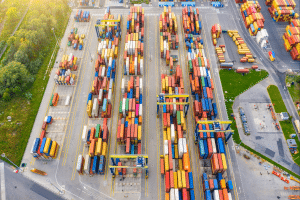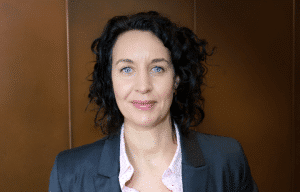Digital twin has been an indispensable tool for a long time. A virtual model simulates various processes considering an object’s relevant aspects, functions, and properties. Though enlarging the scope of digital models from small areas to a whole country can be a mammoth task, the possibilities of creating digital twins have increased significantly in recent years. Improved surveying techniques that allow large-scale and accurate LiDAR data capturing, very high-resolution satellite imagery, and modern technologies, such as AI, cloud computing, etc., have offered tremendous potential in recent years to develop digital twins.
It is imperative to use the potential of digital twins because governments and decision-makers at present and in the future will face many challenges, including natural disasters, scarcity of natural resources, increased land consumption, and social demands. Most of these causes correlate. To address them effectively, data-driven methods are needed to analyze the interconnections between the different reasons. Thus, a spatially explicit and comprehensive common data basis is essential for many administrative decisions. There is not just a single solution in many situations but multiple alternatives and remedies. A common database and framework are of utmost importance to compare the effects of different policy decisions, and this is exactly what Digital Twin Germany aims to provide.
Data is Key
Geospatial data is already used for scientific projects, feasibility studies, and planning assessments. For example, accurate information about the affected environment is required to simulate disaster events with hydrological characteristics, such as flooding or heavy rainfall. This could include data on sealed surfaces, urban settlements, or weather-related data. The more data is available, the higher the value of the data. Therefore, the basic dataset will be enriched with other information, such as information on climate, infrastructure, agriculture, or traffic.
Cloud computing, AI, or modern visualization techniques provide opportunities to overlay additional information on the virtual 3D world. Data from the federal administration shall be accounted for as much as possible to develop the complex and dynamic model of Germany. The data has to be consistent and assimilable. Therefore, data will be received from all federal administrations and constantly updated. The Federal Agency for Cartography and Geodesy (BKG) is the key geodata provider for the government’s spatial data infrastructure and has already disposed off much national geodata. All this data is the starting point for building Germany’s digital twin.
Pilot studies
Before developing a digital twin of the whole country, a pilot project was performed to test the feasibility in general. Therefore, the city of Hamburg and its metropolitan area have been surveyed by Hexagon. In this joint project with the State Office for Geoinformation and Surveying of the Free and Hanseatic City of Hamburg, implementations were tested, data validated, and technologies and methods explored. This pilot project gained experience handling, capturing, and analyzing the data and valuable insights into all aspects of the digital twinning process.
A digital twin is not just a technical innovation originating from the remote sensing sector but rather a tool beyond specific thematic areas and applicable to all kinds of the decision maker. But to exploit the full potential of the data, interoperability is key.
Furthermore, a pilot use case was studied within the project Starkregengefahrenhinweiskarte NRW (Heavy rain hazard indicator map North Rhine-Westphalia), completed in the summer of 2021. This project clearly shows the potential of digital twins in processing complex issues by combining geospatial data and specialist expertise. In the project, extreme weather situations (such as heavy rain) were linked to an existing terrain or building structure using hydrological models. Water levels and flow velocities were determined for various scenarios for North Rhine-Westphalia. The spatial resolution was in the range of meters. This pilot digital twin is to be extended to the whole of Germany and further developed at less than 30 cm resolution.
Beyond the Technical Solution
A digital twin is more than just a 3D image of an area or a country. Besides the technical innovation and techniques, it enables policymakers and decision-makers to monitor specific conditions and test scenarios. The most significant advantage is the possibility of predicting how a system could react to changes and revisions.
The Digital Twin Germany aims to establish a new way to communicate with stakeholders at the federal and state level. Developing smart and innovative ideas will take communication to a new level. Complex issues can be analyzed, and test solutions and plans derived. Monitoring systems can be improved for agriculture, water management, air pollution, and climate change. Various scenarios can be simulated, for example, what impact sea level rise would have on settlements and nature. A digital twin is not just a technical innovation originating from the remote sensing sector but rather a tool beyond specific thematic areas and applicable to all kinds of the decision maker. But to exploit the full potential of the data, interoperability is key. Several digital twin initiatives already exist on a municipal level. As the main geospatial data provider, the BKG is filling the gap between international and communal projects. Hence, sharing services, knowledge, and tools is essential to succeed.
A smart way into the future
The Digital Twin Germany is primarily a technical platform that enables analyses, simulations, and visualizations. For this purpose, an editorially maintained data pool, i.e., a broad range of relevant geoinformation, is provided. This platform is intended to support the federal administration in preparing well-founded data for decision-making for many use cases in politics and administration.
Selected use cases will be realized in cooperation and coordination with the competent federal authorities. BKG is thus supporting Germany with its expertise to become a smart country with smart solutions and faster decisions in the future.
Disclaimer: Views Expressed are Author's Own. Geospatial World May or May Not Endorse it








